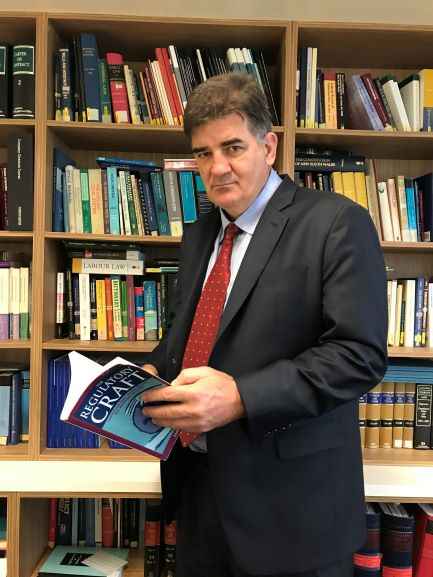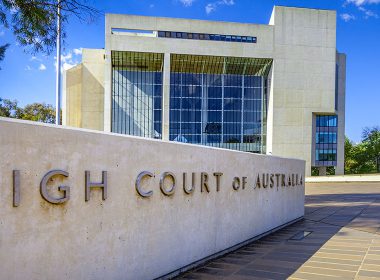Surveillance Devices Commissioner Donald McKenzie has had an extensive and global career as a government solicitor, including for the DPP, the Royal Commission into the Police Service, ICAC, the Directorate on Corruption and Economic Crime in Botswana and the United Nations Office of Drugs and Crime in Myanmar. McKenzie gives the LSJ an insight into his passion for public service.
“I’m passionate about building strong institutions within our public sector that can weather the storm,” says McKenzie.
McKenzie’s functions are delegated from the State Attorney General under the Surveillances Devices Act 2007 (NSW), and he believes this Act is fundamental to upholding justice.
“The fact that people don’t get monitored unless a Supreme Court judge decides that it is necessary is a really powerful freedom,” says McKenzie.
His role is to review and negotiate application material prior to it passing to an eligible Judge for consideration. He has the right to be heard when an application is made and receives and reviews reports from agencies in relation to how authorised devices are used.
“I have every confidence that if we submit the right material before Supreme Court judges they will reach the right decision,” says McKenzie.
He describes the task as a “delicate balancing act” – weighing the need to facilitate criminal investigations against the privacy rights afforded to members of the community.
Having worked in Africa and Asia, McKenzie highlights how lucky we are to have such strong institutions.
“I’ve travelled extensively and seen places that have weak judiciaries where there is a lack of independence,” says McKenzie.
“In my view, our Supreme Court is a national treasure. It exudes independence, integrity and competence.
“Placing the state’s ability to interfere with our freedoms into the hands of those judges is a really powerful statement about how much we value freedom.”

Another key aspect to McKenzie’s role is striking the balance between being passionate but apolitical.
“I fundamentally believe that, as a public servant, it is not for me to decide how government functions,” says McKenzie.
“My role is to administer government according to the policy dictates of the Executive Government of the day.”
Looking ahead, McKenzie notes that government solicitors have a difficult road, particularly in the context of COVID-19.
“We’re in a very fluid environment particularly with this pandemic situation. There is already the constant challenge for government lawyers to do more with less,” says McKenzie.
While technology makes that possible, McKenzie says the pressure placed on government solicitors can be demoralising if not managed well.
He also believes effective teamwork is at the heart of public service and says there is greater satisfaction in working collectively towards a goal than working alone.
“The best professional experiences I’ve had have been when I’ve worked with effective teams,” says McKenzie.
He acknowledges the difficulty of maintaining this sense of teamwork in the context of COVID-19.
“When I was in Myanmar, I worked remotely and had no colleagues around me. It was a very difficult experience,” says McKenzie.
“I missed just saying good morning to people as you walk into an office.
“Now, more than ever, it is important we generate community and facilitate teamwork, even if that’s done electronically.”




